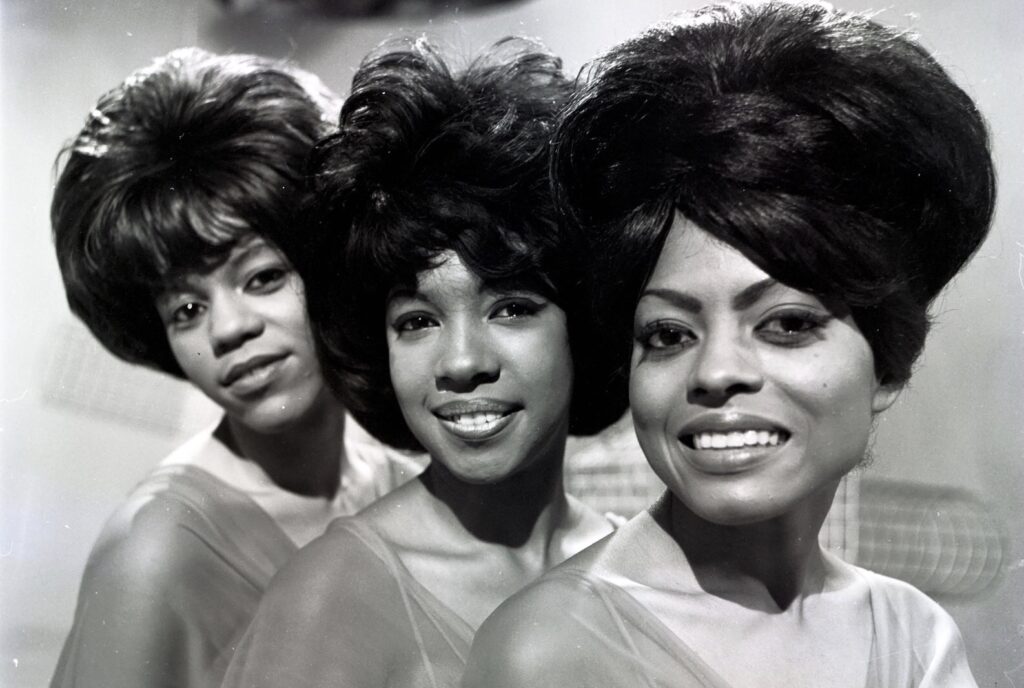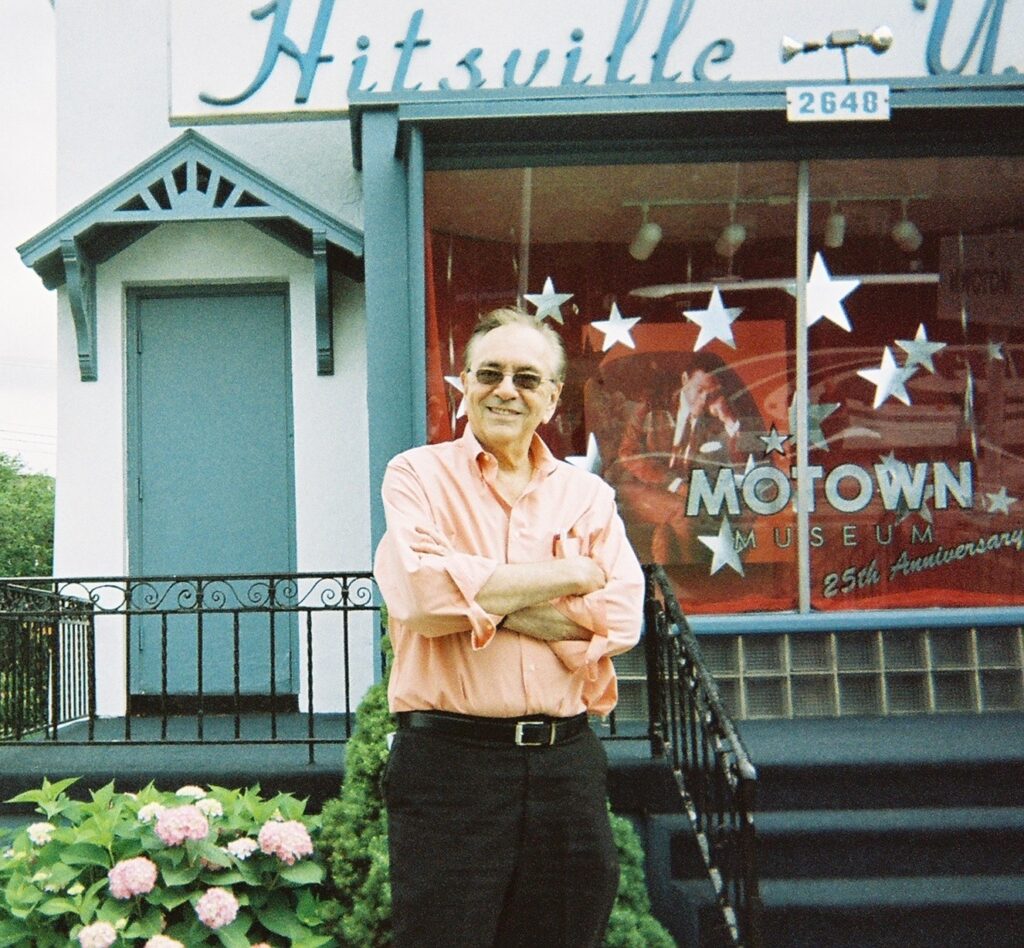It’s been more than a week since the death of Mary Wilson, one of the three original Supremes, one of the most important groups in American music, and in America. The other two were Florence Ballard and Diana Ross.

They were three Black Detroit teens with talent, and the incredible good fortune to be signed by Berry Gordy Jr., the genius who made Motown a national institution. Among the others he signed were Marvin Gaye, the Temptations, the Four Tops, Gladys Knight & the Pips and Stevie Wonder.
Gordy refused to sign the Supremes, originally known as the Primettes, until they had graduated from high school, because Gordy had a vision.
Working out of a two-story house he nicknamed Hitsville, Gordy envisioned his singers as crossover artists who would appeal to the massive white audience. To do that, he ran a sort-of charm school to teach his artists manners and comportment (as report cards used to say), and carefully crafted a public image of regal glamor. His female stars looked like royalty, from their wigs, makeup and form-fitting gowns, to their high heels, false eyelashes, and flawless choreography.
They were more than “safe,” in a color-conscious America. They were desirable.
With their first No. 1 hit in 1964, “Where Did Our Love Go,” the Supremes truly became America’s sweethearts. They recorded 12 No. 1 hits in five years even as the nation was wracked by race riots.
Many things impacted on America’s view of Black people, and I have to believe the Supremes were as influential as anything else in changing white America’s mental picture of Black Americans — they were class and glamor, sexy and sophisticated.
They were not the only thing, of course, but they created a positive image of Blacks as “Will & Grace” and Ellen DeGeneres would later do for gays.
Yeah, OK, I had a crush on the Supremes, along with practically everyone else my age.
So it had special meaning, some 40 years later, when the National Society of Newspaper Columnists was convening in Detroit and we were invited to tour Hitsville (and sing pretend backup in that famous studio). Sometimes the job had great perks.

It was a thrill being right there where so many ground-breaking stars sung their hearts out. (I got a similar thrill when I visited Gamble & Huff’s Philadelphia International Records headquarters at Broad & Locust, with shag carpeting soundproofing the walls.)
When rock started in the ‘50s, there was a lot of resistance to its “noise,” or “race music,” as it was sometimes called.
Many music venues in the South (and elsewhere!) were segregated, until some rock acts refused to perform in segregated auditoriums.
Some music segregation lasted until 1965, as Rolling Stone reported. It’s hard to imagine that today, but it happened.
Diana Ross left the Supremes and went on to become a superstar as a solo artist, while Wilson remained the anchor of the trio, with an ever-changed cast.
Today, more than 50 years after they first hit the charts — opening America’s eyes and ears and hearts with their amazing harmonies and lush orchestrations — when I hear a Supremes’ hit, it stops me in my tracks.
Thank you, Mary Wilson.
Not to date you or anything, Stu, but I was too young to really know anything about The Supremes growing up. However, I do remember listening to and enjoying their music. Such a wonderful sound! Thanks for a pleasant morning post!
So, young man, you didn’t know about their contemporaries — the Beatles? 😀 Both groups have survived their earliest forms because of quality.
HAPPY WEDNESDAY !!!
Stu,
You knocked another blog outta da park ! While you are right to point out that all of those artists coming out of Detroit were black, way back then, I didn’t notice.
Tony
Not for nothing, but some Blacks will tell you that if you “didn’t notice,” you are cancelling them, perhaps you meant you didn’t care.
Stu,
As you may recall. I grew up – like most – in a mixed neighborhood. It was originally German, then the Italians took over, with a splattering of Pole, Irish and believe it or not, a mixed race family. This was the fifties. We didn’t know color or think color until it was pointed out to us .
But as you said. We didn’t care. We didn’t think twice about it.
Maybe that’s part of why I call people their ethnic names. You, a Jew. Me, Wopaho !…………I don’t do it out of prejudice. That’s how it was back then.
T
I think you got the point. You knew they were Black (or Jewish, or Polish) but it did not matter.
HAPPY MONDAY 3/1 !!!
Stu,
This thought goes in and out of my concussion brain.
When I enlisted in the Navy -1965, We left from 401 Broad St. by bus for the airport. While we were loading, naturally there was much joy, congrats and tears of everything from both moms and dads. As we piled on the bus, we were still shaking hands with the greeters. A black woman came up to my window, put out her hand, and said,”will you shake my hand?”. She had a big smile on her face and she was wishing us well. Why wouldn’t I shake her hand? That moment in time has stuck with me all of these years. It never occured to me – NOT to shake her hand. A woman offered me well. Not a black, white, pink or what have you. A woman.
Tony
Has everyone forgotten Cindy Birdsong?
Never, but not a founding Supreme. She (and others) came later.
Stu:
Out of the Park, again, I was watching the Motown Story on TV the other day. I remember dancing to their songs at NORTH CATHOLIC’S MIXERS, THEN JARDDEL REC AND DA SENE I have all of their albums.
Thanks, Rick. These “albums” you mention. What are they? 😃
LP’s, 331/3rd’s, Vinyls? 45 singles, too?
no 78s ?
Yes! brother-in-law who has tossed them. My wife and I have at least 200 lp’s. I had one 16rpm and I gave my son all 45s.
Philadelphia, PA
Dear Stu,
Pleasant musical memories! I certainly recall the Supremes and their music.
My preference, though, is for Dionne Warwick, singing the music of Burt Bacharach. Many personal romantic memories there! And she has stood up to the test of time–when so many “stars” come and go much too quickly. I see an admirable depth of character.
Still, three cheers for Diana Ross and the Supremes.
H.G. Callaway
No argument. She was classy, too, but a solo act.
Philadelphia, PA
Dear Stu,
As the saying goes, “Character is destiny,” and Warwick certainly did grasp the day. But try listening to her doing “A House is not a home”:
https://www.youtube.com/watch?v=olvaDzUi8c8&list=RDolvaDzUi8c8&start_radio=1
(3 Min)
H.G. Callaway
I can actually remember the first time I heard Where Did Our Love Go. I grew up in a housing project in Newark, NJ and fortunately we had a public swimming pool to cool us during the summers. It was used by us white kids as well as the “kids of color” at the same time and was never an issue. Back then, the background music for the swimmers was an AM radio channel being blared out over the loudspeakers. One day this song must have been played every fifth song for the 4 hours we spent there. By the third time I was in love with the song and a Supremes fan forever. Stop in the Name of Love is my favorite Supremes song and I’ll turn up the radio whenever it’s played. Fond memories. Thanks Stu.
I am jealous. My Brooklyn project had no swimming pool. (But we were a mile from Coney Island.)
I saw the Supremes at the Villanova Fieldhouse in 1968. Carrying a Polaroid camera, I ran to the foot of the stage, knelt and focused the camera on Diana Ross. As I was about to take her picture, she looked down, pointed her microphone toward my left shoulder and then toward my right shoulder–as if she were knighting me. I fell in love with Diana Ross, my queen, that day.
What a great story. I was afraid it would end with her pointing you out to security guards. I saw them at the Latin Casino.
Thanks, Stu.
The Supreme’s, Wow! Nice trip back to Motown! Nice photo of you Stu! I love the music of the 50’s & 60’s, but with 4 older siblings spinning their favorites, I was deluged with the 30’s & 40’s, which I also love, and occasionally will put one on the turnstile or just tune in to an on-line station.
Have you seen The History of Rock and Roll by Ken Burns on PBS?
I have not seen that series by Burns.
Correction, my apologies. Country Music is what I was 🤔. Sixteen hours. Great series!
Aaah. I DID see that.
Ain’t no mountain high enough…. I’m glad I was born in that era, such great talent.
When I saw HOW THE SUPREMES IMPROVED AMERICA, I thought of the SCOTUS. Wow, what a NICE article, right into my wheelhouse. I grew up with rock and roll and then the Motown sound…and made a nice living running an oldies station for a number of years that played all the good stuff. To this day I wonder why Philadelphia did not get the Rock and Roll Hall of Fame — Cleveland did, of all places! And finally, to remind us all of how racist Philly used to be, Jackie Robinson was not allowed to stay in a Philadelphia hotel when the Dodgers came to town to play. And if I am not mistaken, Philadelphia was the LAST major league baseball city to break the color barrier.
I believe the Phillies were the last team to integrate.
Nice article Stu. The first record (45RPM) I ever bought was “where did our love go”. I think I paid 69 cents at Booth’s Corner Farmers market in Boothwyn, Pa. They were a class act. I also think the Temptations and the Beatles improved America as well as they broke barriers as well.
What a wonderful tribute to a wonderful group! 1964? It was a very good year for their fans!